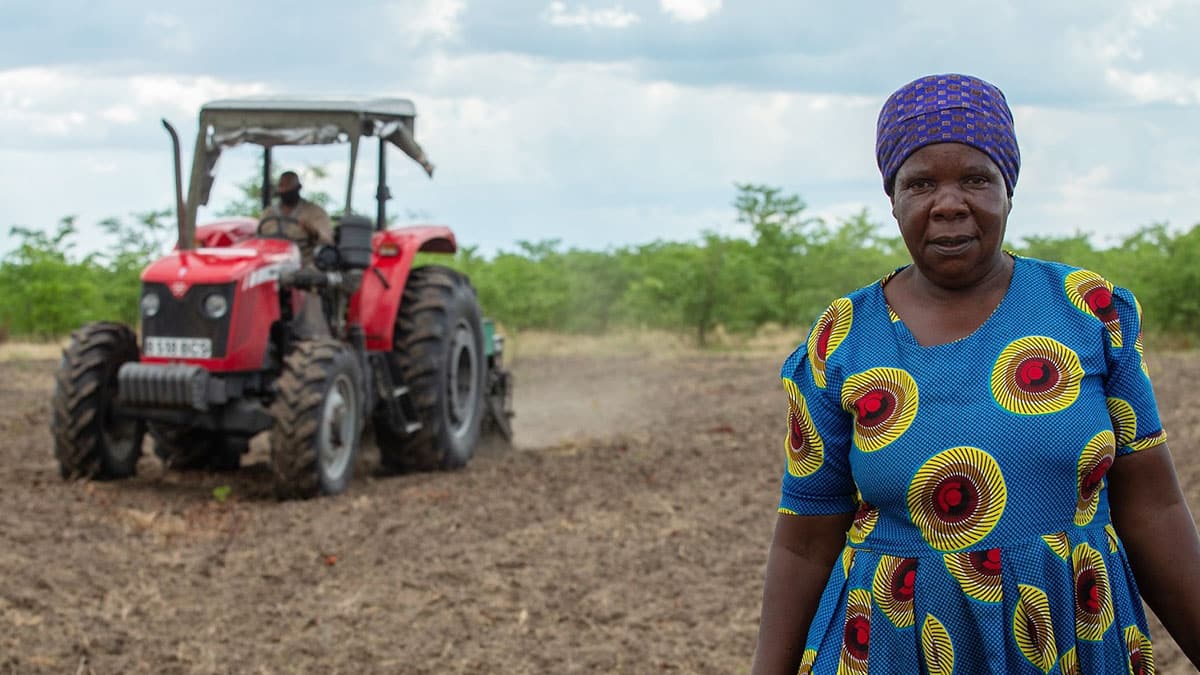As Southern Africa faces its most severe drought in decades, brought about by an intense El Niño event, millions are experiencing extreme food insecurity.
Recognising the challenges faced by its partner communities, Wilderness has committed to providing essential food parcel support to community partners in the region during this time of crisis, including Botswana.
The dry season in Botswana, typically from May to October, brings significant challenges for both people and wildlife.
As water sources diminish, rural communities face water shortages, impacting agriculture and livestock farming, which are critical for livelihoods.
Wildlife, particularly in areas like the Okavango Delta and Chobe National Park, is forced to travel longer distances in search of water, often leading to heightened human-wildlife conflict as animals venture closer to populated areas.
The dry conditions also intensify competition for limited resources, putting immense pressure on ecosystems and the people who depend on them for sustenance and survival.
In response to this, Okavango Wilderness Safaris (Wilderness Botswana) will distribute 350 food parcels each month between November 2024 and January 2025, managed through dikgotla in each area and working with community leaders.
Distribution will take place in the Okavango District, focusing on communities in the Okavango Community Trust (OCT) villages (Seronga, Gunotsoga, Eretsha, Beetsha, Gudigwa), and Sankoyo village.
“We recognise the impacts of drought and the devastating result this brings for farmers and communities. While we provide annual assistance to farmers in these villages through ploughing and seed provision, Wilderness has seen fit to do more this season because of the particularly tough conditions throughout this region. This initiative is much-needed to support those we so proudly work with and amongst. Additionally, this intervention aims to mitigate the strain on natural resources, including wilderness areas and wildlife, which often suffer when livelihoods are threatened by disasters. Our goal is to deliver vital assistance where it’s needed most. We’ve engaged with community leaders to identify those in urgent need and develop an effective support strategy. As a result, we have put a comprehensive intervention plan in place and we hope we can bring some alleviation and deliver positive impact”, said Kabelo Binns, Okavango Wilderness Safaris (Wilderness Botswana) Board Chairperson.
The regional relief initiative will also see the distribution of food parcels across various communities in Namibia, Zambia and Zimbabwe.
It is hoped that the need for this intervention will be temporary, as the El Niño event transitions to La Niña, potentially bringing beneficial rains in the months ahead.
“Drawing on our 40 years of experience in conservation tourism, we understand that local communities are intrinsically connected to the wild areas we protect and the wildlife that inhabits them. As custodians of these affected regions, we acknowledge our responsibility and are delighted that the Wilderness Trust is committing USD250,000 in vital food aid”, said Vincent Shacks, Wilderness Group Impact Manager.
In response to the challenges presented by the COVID-19 pandemic, Wilderness successfully mobilised support from guests, trade partners, staff and the Michael and Karen Stone Family Foundation Inc., raising nearly USD700,000 for food relief.
Now, in light of the current drought, Wilderness is poised to replicate these efforts to provide essential support to communities in need.
With the USD250,000 in funding secured from the Michael and Karen Stone Family Foundation, through the Wilderness Trust, local teams have been deployed across Botswana, Namibia, Zimbabwe, and Zambia, focusing on those most affected to deliver a collective 9,000 emergency food parcels in the region to approximately 12,500 individuals – primarily children.
This focus on children is crucial for ensuring proper nutrition for school-age youth, alleviating pressure on parents while supporting their learning.







